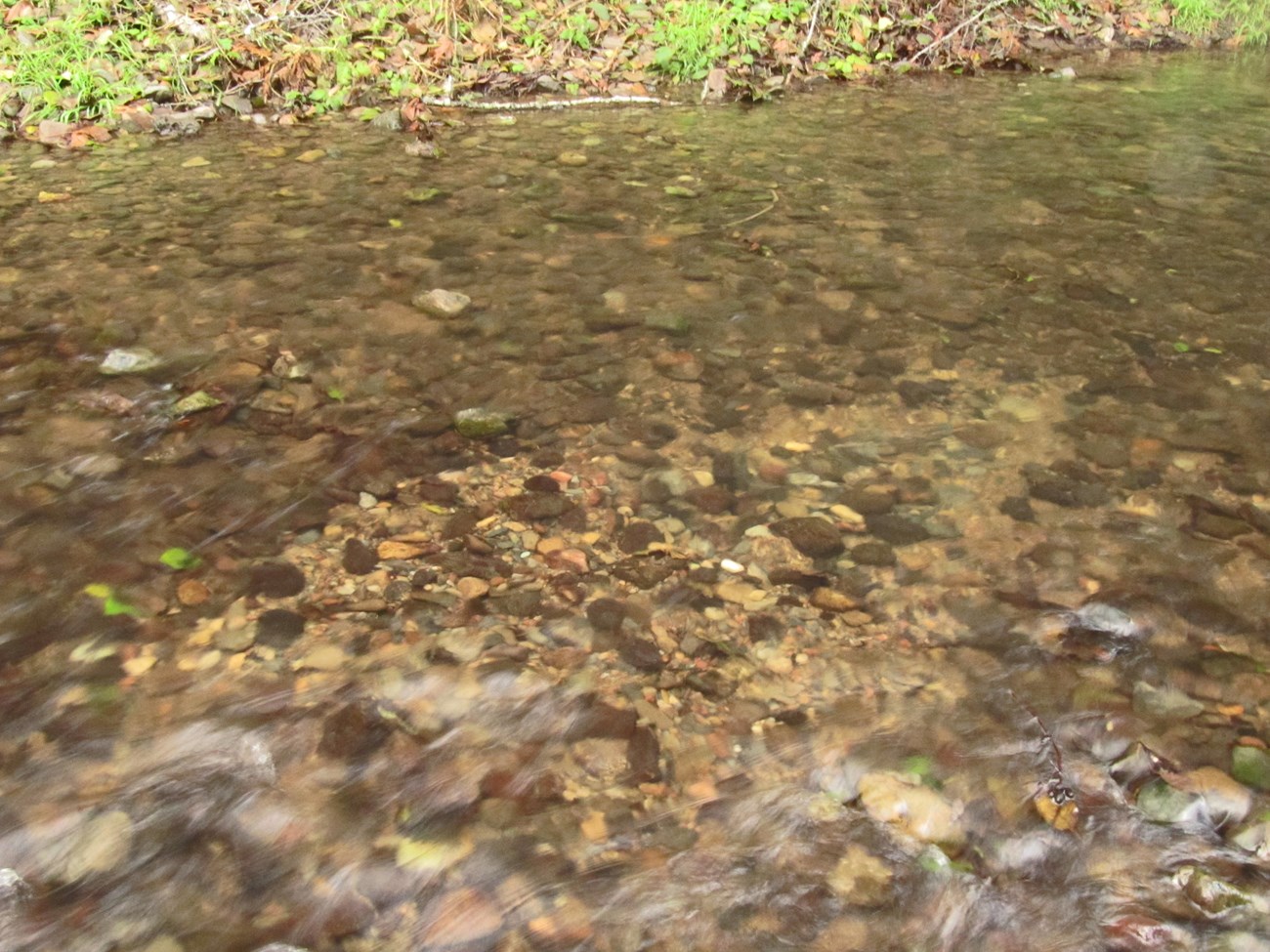Last updated: January 3, 2020
Article
Slow Start to 2019-2020 Coho Spawning Season

NPS
December 2019 - Sometimes, the first coho salmon attempting to return to their natal Bay Area streams to spawn have to wait offshore. After months of dry weather, they need lots of rain to get their creeks flowing and reconnected to the ocean before they can swim upstream. This year, after a dry fall, the first rains arrived during the last week of November, and rain continued to fall in December. With flows on both Olema and Redwood Creeks high enough for adult coho to migrate in from the ocean, the Salmonid Monitoring Program began spawner surveys to count how many coho are returning.
As of December 19, the monitoring team had counted one redd (nest) in Redwood Creek and two redds in Olema Creek. Fishery Biologist Michael Reichmuth had expected to see at least a half dozen redds in each stream by that point. Nevertheless, it is still very early in the season, and he is hopeful that more coho are waiting offshore to return to their natal streams amidst the higher flows that the next storms will bring. By early January, Mike hopes to start getting a sense of how this winter’s coho spawning run is stacking up compared to previous years.
Email Mike for more information.
